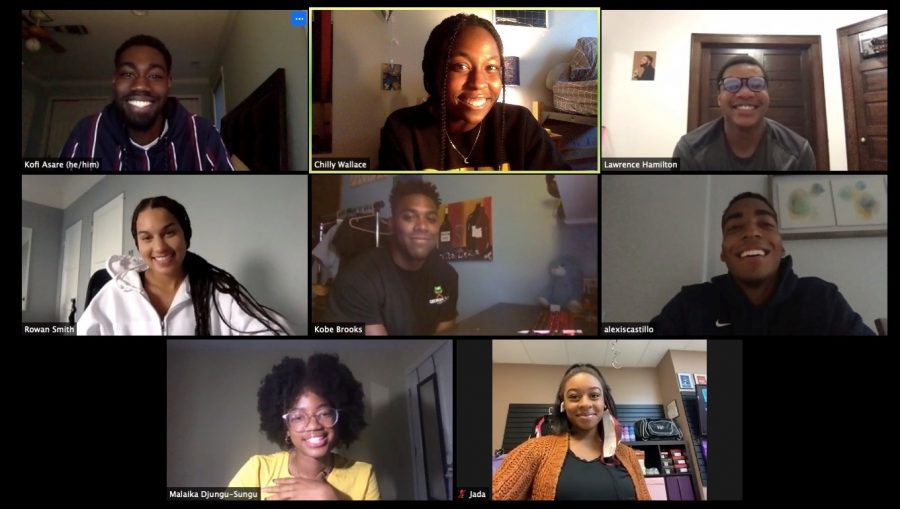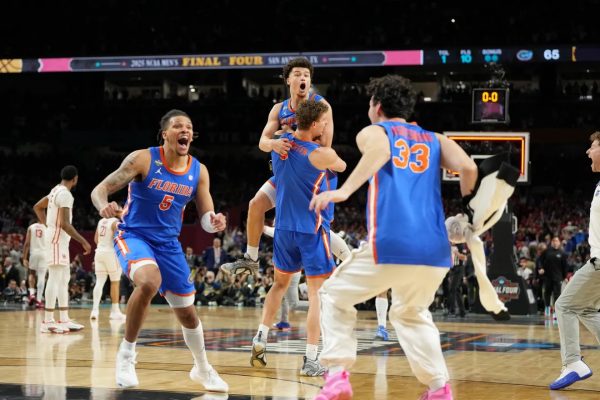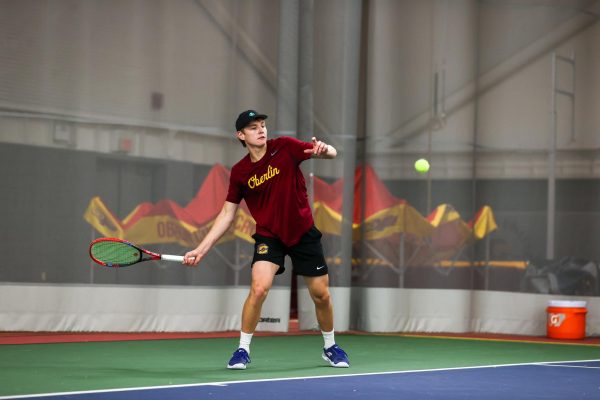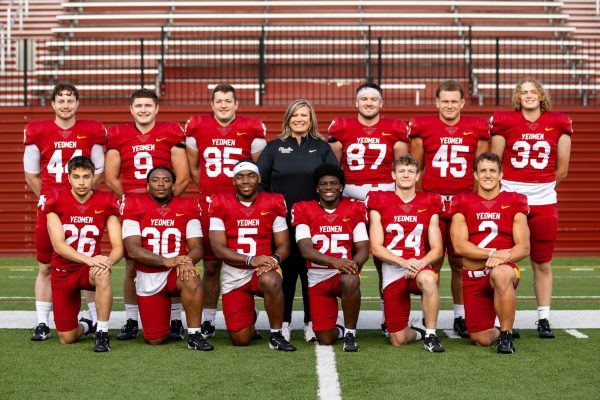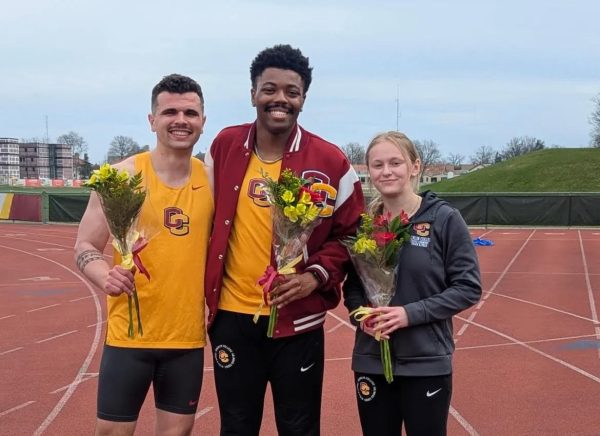Black Student Athlete Group Cultivates Community
Oberlin has multiple communities for Black, Indigenous, and students of color to come together. But, until recently, there was no designated space for Black athletes. This semester the Black Student Athlete Group has begun meeting every month and creating initiatives to diversify the Athletics Department.
Oberlin’s BSAG was initially founded in 2019 by graduates Naeisha McClain, Cheyenne Arthur, Jabree Hason, Jubreel Hason, and Devin White. Despite the year being cut short due to COVID-19, they set the groundwork for current student-athletes to continue this work.
College third-years and varsity track and field athletes Kofi Asare and Malaïka Djungu-Sungu are the current co-chairs of the group. Asare wants BSAG to provide continued support for athletes and also increase the retention of Black students at Oberlin.
“This group is so important because we have a chance to provide support in an already existing community for Black student-athletes at Oberlin to come,” he wrote in an email to the Review. “I want this to be an ongoing organization with consistent work being done so Oberlin sees less of its Black students — specifically athletes — leave the institution or teams due to a lack of support or feeling heard from the same people who convinced us to come.”
College third-year, varsity women’s basketball player, and BSAG Secretary Rowan Smith emphasized the importance of having a community to advocate for Black athletes’ well-being and a space to discuss the challenges that Black athletes face.
“We can talk about the unique challenges that we face that some of us may feel hesitant to talk about with our white teammates,” she wrote in an email to the Review. “This is also a space where we can really advocate for action not only against inequalities but [also] just for our overall well-being as Black athletes.”
This year, BSAG meets with the Athletics department’s diversity and equality working monthly. They are also connecting with the Office of Alumni Relations and the John W. Heisman Club to foster networking and mentoring opportunities, and are working toward creating an Oberlin Black Athlete Alumni Association group. They’re also hoping to mentor athletes themselves by connecting with the the Black Student Union at Oberlin High School.
Another one of BSAG’s priorities is to hole the Athletic department accountable for hiring a more diverse staff. “I’d love to see a more diverse staff in the Athletic department,” Smith wrote. “Ultimately this falls on current staff to make this happen for us, but our group has mentioned this to them as a big priority. They also let us know that this is something on their radar that they plan to work on.”
BSAG has begun work on these projects via Zoom, despite some of the board not being on campus this semester. While this has proven challenging, Asare has maintained a positive outlook about what they can accomplish this semester and beyond.
“We have had to look into remote ways to connect with folks, but you just have to look at the glass as half full rather than empty,” he wrote. “We cannot hold meetings or events in person, but starting to cultivate relationships and a community during the pandemic will be what sets us up for success when things are back to normal. It’s just about being even more creative and strategic moving forward.”
There are also plans to connect with other Black student organizations on campus, such as ABUSUA, to create a connection between all Black students on campus and hold more events during Black History Month.
College fourth-year, varsity baseball player, and BSAG Community Outreach Officer Lawrence Hamilton spoke to the necessity of creating a space for Black students.
“Creating this space was essential to us during this time of uncertainty,” he wrote in an email to the Review. “During these unusual times, it’s important to have people in your corner that you can rely on for advice and wisdom. Creating this space allows us to be that voice to individuals, while at the same time, giving us an outlet.”
Asare views BSAG’s work as a larger part of creating institutional memory and support for Black student-athletes.
“It’s key that we do all that we can to be the change that we want to see so [that] this can become institutionalized and can last way past our time as Oberlin students,” Asare wrote. “Consistency is key for us to thrive and flourish this year.”
For those interested in joining or more information about BSAG, follow @oberlinbsag on Instagram.


